Margaret Wehrenberg – The Ten Best-Ever Anxiety Treatment Techniques
$219.99 Original price was: $219.99.$43.00Current price is: $43.00.
[Instant Download] – You will receive instant download access after the purchase
- Faculty:
- Margaret Wehrenberg
- Duration:
- 6 Hours 31 Minutes
- Format:
- Audio and Video
- Copyright:
- Dec 17, 2020
Description
| Manual – The Ten Best-Ever Anxiety Treatment Techniques (776.5 KB) | 45 Pages | Available after Purchase |
Outline
Neurobiological Basis of Panic, Worry & Anxiety
- Why & how psychotherapy works to “use the brain to change the brain”
- Pragmatic application of neuroscience to provide effective treatment
- Presentation of anxiety when comorbid with depressions
- Identify lifestyle contributions to anxiety
- Impact of cannabis, caffeine, alcohol, tobacco/vaping, sugar
- Physical conditions that mimic panic
- Explore potential uses for medication
- When to refer for medication
- Discontinuing medication under medical guidance
Purpose of Worry
- FOUR reason worry persists and the methods to manage those
- Cognitive interventions to reduce persistent rumination
- Eliminating worry: TWO methods to “contain worry”
Techniques That WORK to Modulate Physiology
- FOUR important lifestyle changes to reduce anxiety
- Treatment approaches that change brain function for long lasting recovery
- Activate the brain’s Default Mode Network (DMN) to increase cognitive flexibility & creative problem solving
- The right way to teach & use diaphragmatic breathing
- Use the Protocol, Predict, Prepare & Plan, to eliminate panic
- Develop the FOUR competencies of stress management
- Eliminate stressors – Impact of constant technology use
- Screen time, gaming, texting
- Respond to new fears created/ exacerbated by social media
- Managing time & environment
- Managing attitude
- Rest & relaxation: Including the powerful Attention Restoration Theory
- Eliminate stressors – Impact of constant technology use
- Use the powerful, science-based protocol for memory reconsolidation to create successful exposures
- Change catastrophic thinking
- Utilize Mindful Awareness techniques to improve social anxiety fear
- Apply the “3 C’s” model to construct treatment for social anxiety
- Employ techniques for mindfulness to improve the response to exposure methods
Techniques for Treating Cognitive Problems of Anxiety & Panic
- The best thought-replacement methods for worry & rumination
- Identify the person with “Too Much Activity”
- Tools to reduce generalized anxiety in the highly active person
- Cognitive approaches that can intervene on anxiety-producing perfectionism and procrastination that interact with Generalized Anxiety Disorder
Techniques for Managing Social Anxiety
- Address the relationship between the desire for significance & social anxiety in Millennials and the iGeneration
- Special considerations for treating different age groups, from children to aging clients
- Identify negative internal dialogue & apply methods from rational emotive therapy to counteract that
- Structure cognitive change through planned “counter-cognitions”
- Construct “In vivo exposure” techniques that optimize recovery from social anxiety at every age
- Utilize Emotional Freedom Techniques & “Tapping In” to diminish anticipatory anxiety
Limitations of the Research & Potential Risks
Faculty

Margaret Wehrenberg, Psy.D. Related seminars and products: 15
Psychologist
Wehrenberg and Associates
Margaret Wehrenberg, Psy.D., a licensed clinical psychologist, is the author of nine books on the treatment of anxiety and depression, including her most recent e-book, Pandemic Anxiety: Fear, Stress, and Loss in Traumatic Times (January, 2021), best selling book, The 10 Best-Ever Anxiety Management Techniques (W.W. Norton, 2018), and You Can Handle It: 10 Steps to Shift Stress from Problem to Possibility (PESI, 2017). She has also written a book for the general public, The 10 Best Anxiety Busters.
An expert on the treatment of anxiety and depression, she also has extensive training and expertise in the neurobiology of psychological disorders. In addition to clinical work, she coaches business professionals on managing anxiety and has contributed articles for the Psychotherapy Networker magazine. She has produced Relaxation for Tension and Worry, audio soundtracks for breathing, muscle relaxation and imagery to use with anxious clients. Margaret blogs on depression for Psychology Today. Noted for humor, pragmatic treatment approaches, and her interactive teaching style, Dr. Wehrenberg is a sought-after speaker for conferences and trainings, consistently getting the highest ratings for her dynamic presentation and high-quality content. She is one of PESI’s most highly rated speakers and her evaluation from the most seasoned professionals often rank her training “as among the best I have ever attended.”
Speaker Disclosures:
Financial: Margaret Wehrenberg maintains a private practice. She is an author with W.W. Norton publishing and receives royalties. She receives a speaking honorarium from PESI, Inc.
Non-financial: Margaret Wehrenberg is a member of the American Psychological Association and the Anxiety Disorder Association of America.
Delivery Method
– After your purchase, you’ll see a View your orders link which goes to the Downloads page. Here, you can download all the files associated with your order.
– Downloads are available once your payment is confirmed, we’ll also send you a download notification email separate from any transaction notification emails you receive from imcourse.biz.
– Since it is a digital copy, our suggestion is to download and save it to your hard drive. In case the link is broken for any reason, please contact us and we will resend the new download link.
– If you cannot find the download link, please don’t worry about that. We will update and notify you as soon as possible at 8:00 AM – 8:00 PM (UTC+8).
Thank You For Shopping With Us!
Be the first to review “Margaret Wehrenberg – The Ten Best-Ever Anxiety Treatment Techniques” Cancel reply
Related Products
Medical & Health
Medical & Health
Medical & Health
Medical & Health
Margaret Wehrenberg – 25 Custom Treatment Techniques for Anxious and Depressed Clients
Psychology & Body Language
Margaret Wehrenberg – 10 Best-Ever Depression Treatment Techniques
Medical & Health
Ten Best-Ever Anxiety Treatment Techniques – Margaret Wehrenberg
Psychology & Body Language


![[Audio Download] BT16 Workshop 25 - Humor](https://imcourse.biz/wp-content/uploads/2022/02/Audio-Only-BT16-Workshop-25-Humor-Hypnosis-and-Homework-Concrete-Strategies-for-Helping-Anxious-and-Depressed-Kids-In-and-Out-of-the-Therapy-Office-Lynn-Lyons-LICSW-100x100.png)
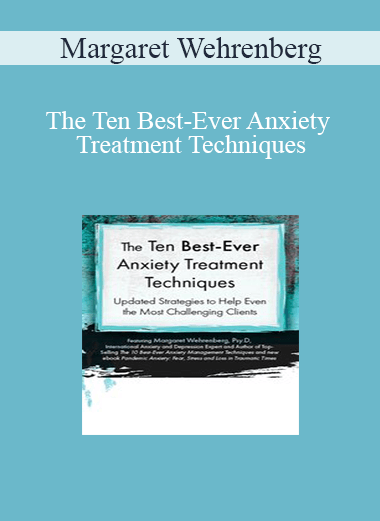

![[Download Now] The New Face of Anxiety: Treating Anxiety Disorders in the Age of Texting](https://imcourse.biz/wp-content/uploads/2022/02/The-New-Face-of-Anxiety-Treating-Anxiety-Disorders-in-the-Age-of-Texting-Social-Media-and-247-Internet-Access-by-Margaret-Wehrenberg-400x556-1.jpg)
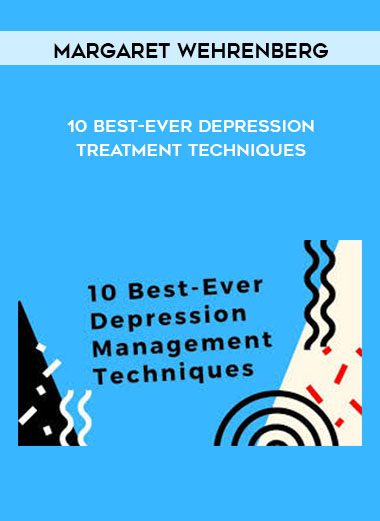
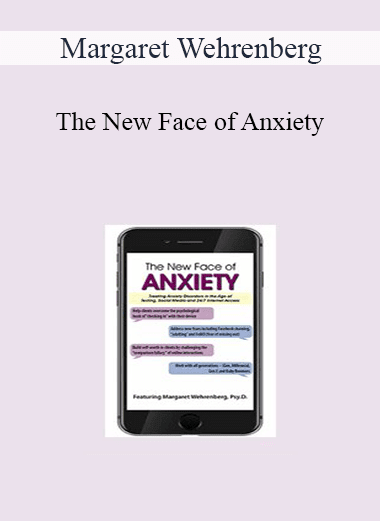
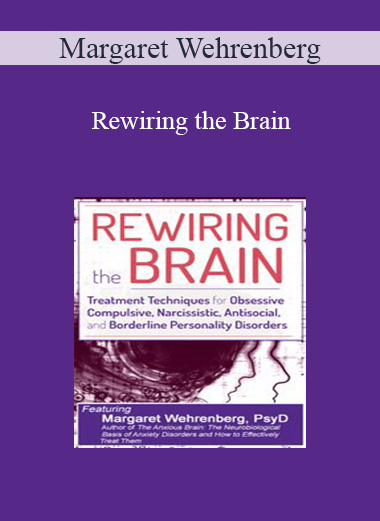
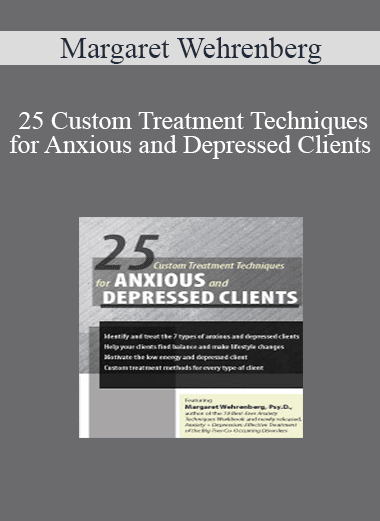
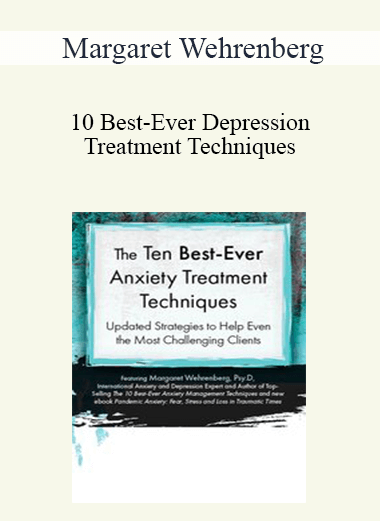
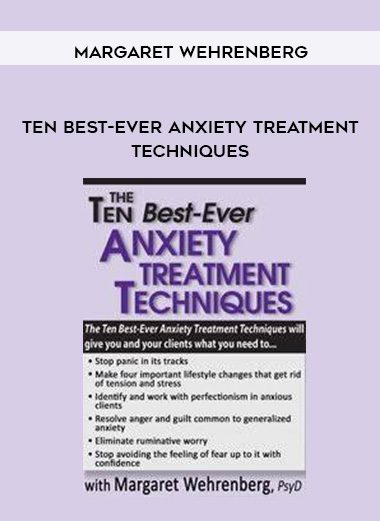
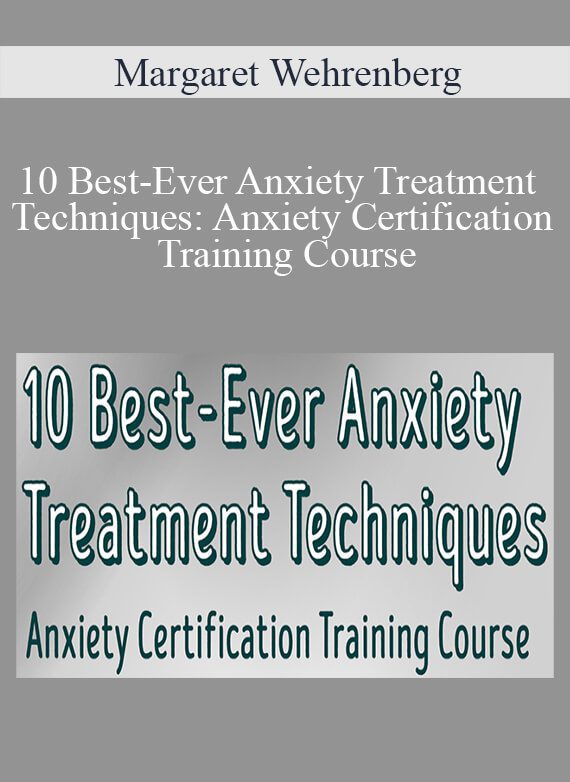

8 reviews for Margaret Wehrenberg – The Ten Best-Ever Anxiety Treatment Techniques
There are no reviews yet.